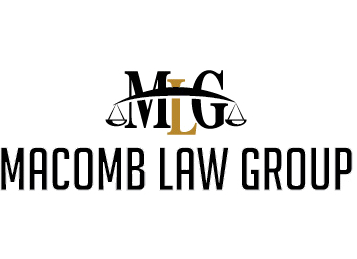Many individuals have their first, and only, brush with the criminal justice system when they are arrested for an OWI. This can lead to sleepless nights, anxiety about work and family obligations, and a general feeling of disappointment about their actions. While these are all valid ways to feel, the best way to combat these feelings is to inform yourself about how to proceed through the coming months.
Court can be a scary place for someone who has never been there. So, let’s breakdown what to expect when you find yourself charged with an OWI.
Talk to Your Family & Friends About Your Case
First, I always recommend discussing what happened with family or friends. People who go through the court system alone never farewell. By hiding the behavior that led to your arrest, you are furthering pushing yourself into solitude. While this might not be the best strategy for all, having the support of friends and family will result in better mental health and a more favorable outlook to the judge.
Do Your Research
Second, do what you are doing now! Research attorneys. Research the law. While some attorneys prefer uninformed clients, this operates to the detriment to all parties involved. Finding an attorney who will work with you and listen to your thoughts is incredibly important. We might not always agree with your strategy on how to proceed (after all, we are the lawyers), but engaging with your lawyer about your case will make you feel more confident about your case. If this case means everything to you, it means everything to the dedicated OWI attorneys at Macomb Law Group!
Understand the Court Process
Arraignment
It is also important to know how the court process will proceed. After your arrest, you may or may not be arraigned based on the facts of your case. The arraignment is when you plead guilty or not guilty, and the court will impose bond restrictions. These restrictions, along with a possible monetary guarantee, are to ensure that you are remaining sober and out of trouble while the lawyers work your case. This usually entails some form of alcohol testing (either breath or urine), and it is incredibly important to do well! Showing a judge that you can follow their orders while on bond will present you in a very favorable light down the road.
Pre-Trial Conferences
After arraignment, you will attend at least one Pre-Trial Conference. This is a court hearing where your attorney and the prosecutor will discuss your case in a conference room. You won’t be expected to do anything, but your presence is mandatory. It also gives the judge a chance to check in with you regarding your status on bond. Your lawyer can also address any issues you have been having on bond. If your attorney is able to work out a plea deal, you may enter your plea at one of these hearings. Alternatively, your lawyer may file a motion, which may set up an evidentiary hearing. Your lawyer may question the police officer and other involved parties. The judge may enter a ruling dismissing evidence, or they might find that the motion was not successful.
While you’re progressing through Pre-Trial Conferences, there may be extended periods of time where you are just remaining compliant on bond while your attorney fights the case. This is normal. It also provides you the opportunity to communicate with your attorney about possible issues with your case.
Trial or Plea
If the case isn’t dismissed, you will either proceed to trial or enter a plea. Jury trials for OWI are complex, and you need an attorney who has fought out these issues previously. (Luckily, we have with not guilty verdicts!) If you enter a plea, that’s okay! Not all cases are meant for trial. Sometimes, the officer does their job the way they were taught. That doesn’t mean that all hope is lost. Instead, it is time to work on sentencing. At your plea hearing, your attorney will ask you some questions about the night of your arrest. This can be a smooth process with the right preparation by your attorney. The judge will schedule a sentencing hearing for some time in the future.
In the meantime, you will go through two processes. First, you will meet with probation to discuss your risk factors for a second offense. For most people, this meeting is fairly routine. While it isn’t fun, you will be prepared thoroughly about what to expect. Second, you will work with your attorney to prepare your case for sentencing. This includes obtaining letters of support, possibly undergoing a substance abuse evaluation, and assisting your attorney with preparing a sentencing memorandum. This memo gives you the opportunity to explain to the judge who YOU are.
Sentencing
Finally, you will be sentenced. For a first offense OWI, you can expect probation, alcohol testing, mandatory AA meetings, and some form of alcohol education. Jail for a first offense is rare, but depending on the court and the factors of your case, it is a possibility. Working with your attorney to explain your case to the judge can mean the difference between a long, strenuous probation or a probation tailored to YOU.
Let the experienced Trial Lawyers at Macomb Law Group fight for you.
Of course, the Macomb Law Group are here to help. We have handled numerous OWI cases. We have achieved dismissals, favorable pleas, and “not guilty” jury verdicts. Whichever way your case goes, we have the knowledge and skills to support you every step of the way. Don’t stay up worrying. Give the Macomb Law Group a call and let us go to work for YOU.
